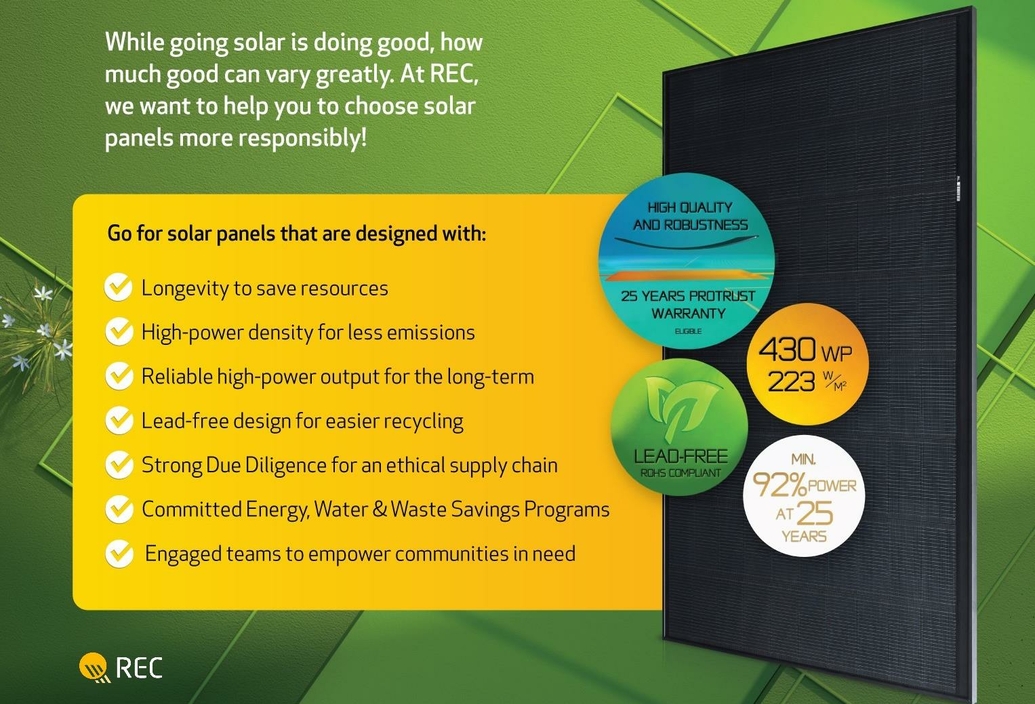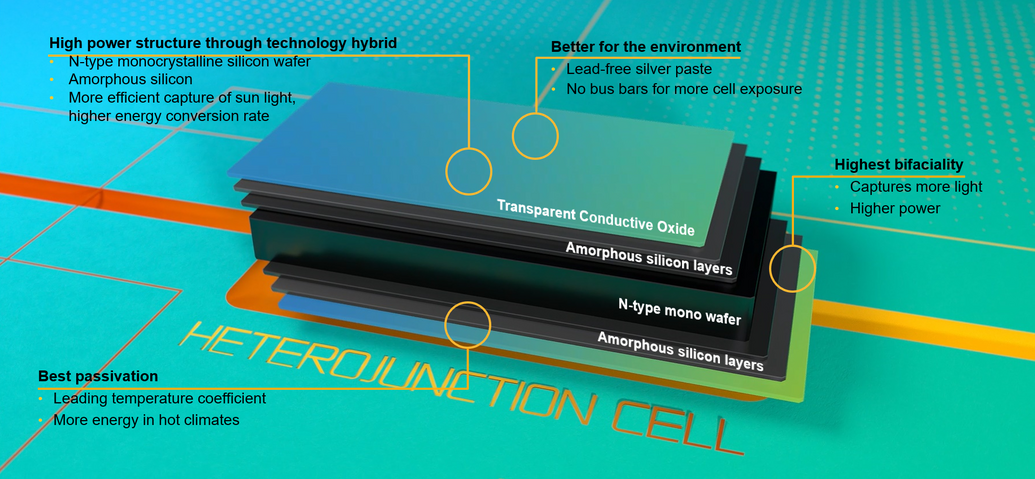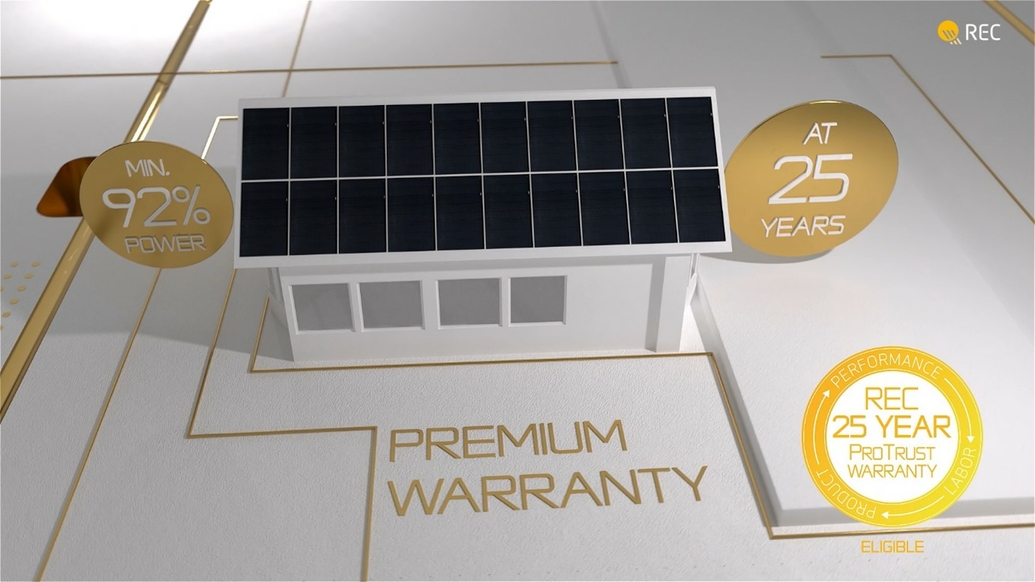
Higher Power, lower Footprint – How to make a greater contribution by choosing solar panels more responsibly
With over 25 years of experience in the industry, REC Group is committed to making a positive impact on the planet and communities through a robust Environment, Social, and Governance (ESG) strategy. In line with its mission to educate consumers on the environmental impact of the solar industry, REC Group has launched a global ESG campaign for 2023. The campaign aims to raise awareness about the three core environmental subjects in the industry: Energy, Water, and Waste.

Power density is a crucial metric for homeowners and businesses seeking to maximize their rooftop's solar energy potential. Technologically advanced solar panels available today should have an efficiency of over 22 percent. By opting for higher efficiency solar panels, fewer panels are required to create a rooftop solar system, reducing resource consumption without compromising energy output.
Various solar panel technologies are currently available, including TOPCon, PERC, and the most advanced Heterojunction cell technology (HJT). By combining two different materials, HJT allows more sunlight to be captured, unlocking the greatest potential for energy harvesting. REC has been developing and manufacturing HJT-based solar panels since 2019, releasing four significant innovations globally in the last four years using its advanced Alpha HJT technology.

Reliability is another key factor. Top branded solar panels in the industry offer a guaranteed power performance of at least 92 percent at year 25, while others based on TOPCon guarantee only around 89 percent.

Manufacturing solar panels is energy-intensive, and metrics such as Energy Payback Time and Carbon Footprint should be considered by environmentally conscious homeowners and businesses. Some manufacturers not only claim an Energy Payback Time of less than one year but also provide an Environmental Product Declaration (EPD) to validate their footprint.
By making informed choices and selecting responsibly made solar panels, homeowners and businesses can contribute significantly to mitigating climate change while enjoying the benefits of clean solar power.
To learn more, visit the full article at www.recgroup.com/higher-power-lower-footprint
For media inquiries please contact:
Agnieszka Schulze
Head of Global PR, REC Group
Tel.: +49 89 4 42 38 59 39
E-mail: agnieszka.schulze@recgroup.com
REC Solar EMEA GmbH
Balanstr. 71a 81541
Munich, Germany
Managing Director: Cemil Seber
Court of Registration: Munich HRB 180306
VAT ID-No: DE266243545
About REC Group:
REC Group is an international pioneering solar energy company dedicated to empowering consumers with clean, affordable solar power through high-quality solar panels with a leading power density. As Solar’s Most Trusted, REC is known for its patented innovations and multiple award-winning products with reliable long-term performance. The cornerstone for REC’s strong reliability is advanced and highly efficient manufacturing using Industry 4.0 practices. Founded in 1996 in Norway, REC has always been committed to a low carbon footprint in its solar materials and panels. REC is headquartered in Norway with operational headquarters in Singapore and regional hubs in North America, Europe, and Asia-Pacific. As of December 2021, REC is part of Reliance Industries Limited, India’s largest private sector company with revenues of USD 118.6 billion.